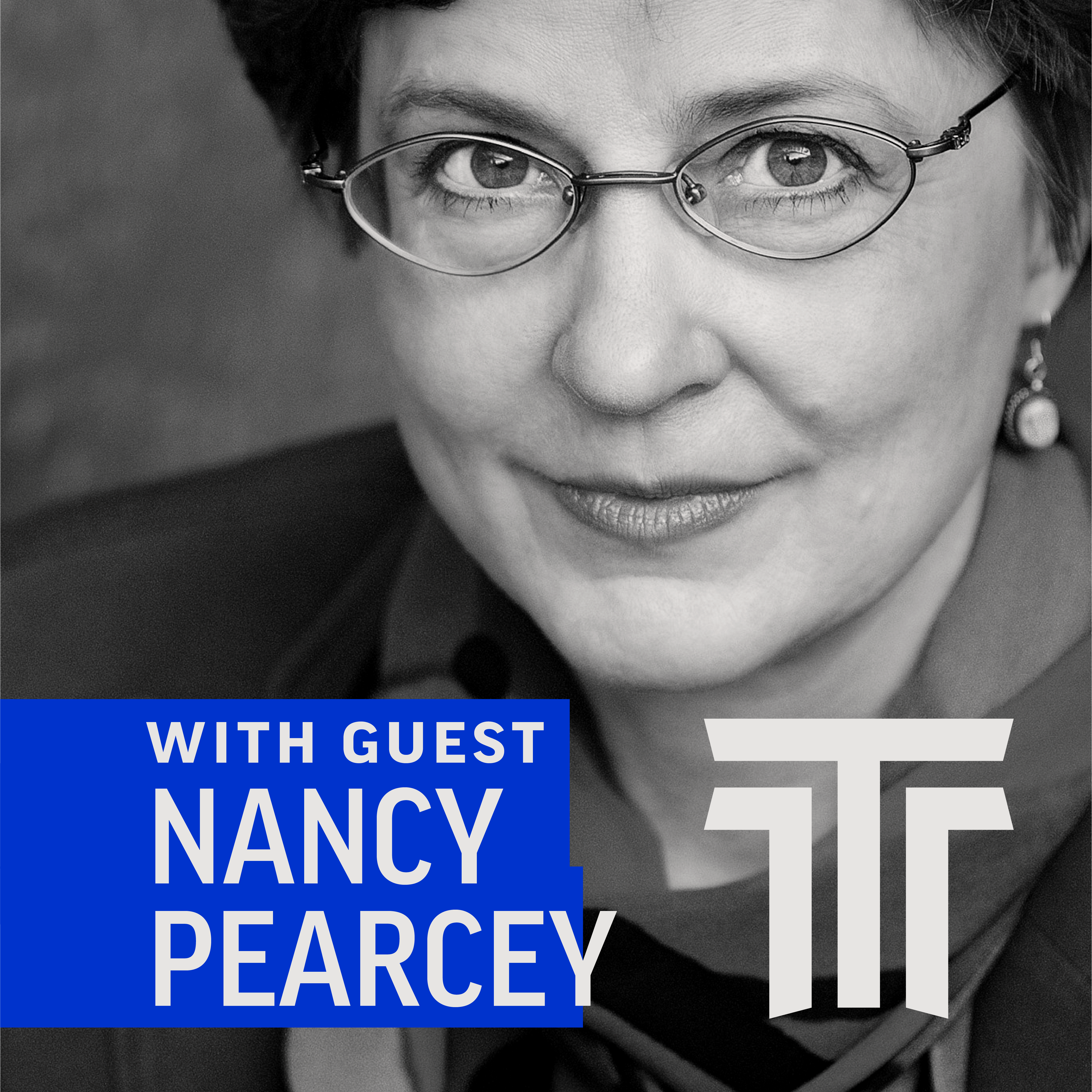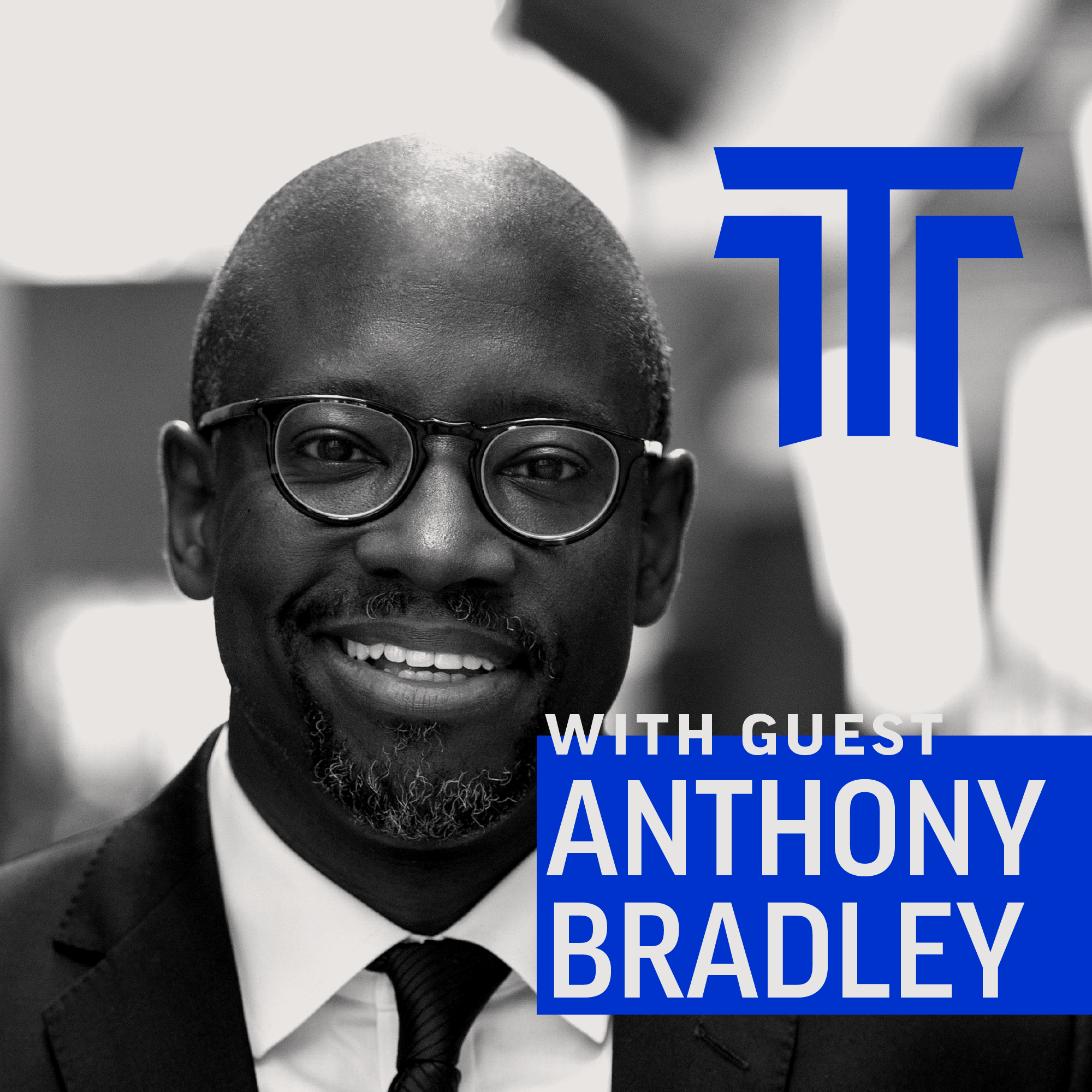The Toxic War on Masculinity with Nancy Pearcey
How did the script for masculinity turn so toxic?
“Kill all men.” “Talking about healthy masculinity is like talking about healthy cancer.” “So many men, so little ammunition.” Yes, these are actual headlines. How did the idea arise that masculinity is so dangerous and destructive? Is there any hope for redemption for boys and men in today’s culture? That’s what we’re diving into today when Keith sits down with Nancy Pearcey, a professor at Houston Christian University and the author of several books, including her most recent, “The Toxic War...
Read More“Kill all men.” “Talking about healthy masculinity is like talking about healthy cancer.” “So many men, so little ammunition.” Yes, these are actual headlines. How did the idea arise that masculinity is so dangerous and destructive? Is there any hope for redemption for boys and men in today’s culture? That’s what we’re diving into today when Keith sits down with Nancy Pearcey, a professor at Houston Christian University and the author of several books, including her most recent, “The Toxic War on Masculinity: How Christianity Reconciles the Sexes.” Hear her explain why the script for masculinity turned so toxic, discuss the differences between masculinity and femininity, and share some surprising research regarding Christian men. Plus, does Christianity have the power to overcome toxic behavior in men and reconcile the sexes? Listen now!
Ok, truth time... Did you like this episode? Tell us by leaving a rating or review! 🌟🌟🌟🌟🌟 If you did, you won't want to miss what's next (so subscribe now!). And help a friend by sharing this with them. Thank you! 🙏
Plus, the conversation is just beginning! Follow us on Twitter, Facebook, and Instagram to join in on the dialogue! If you disagree with anything in this episode, we'd love to hear your thoughts here. Want to learn more about Truth Over Tribe? Visit our website and subscribe to our weekly newsletter.
Want more truth over tribe? Check out our resources!
Resources

Resources
Check out our resources!Recent Episodes

Trump Wins: What the 2024 Election Results Mean for Christians
In what might be the biggest comeback in American politics, Donald Trump was elected the 47th president of the United States this week, defeating Vice President Kamala Harris in a decisive victory. On today’s episode, we’re doing our best to break it down from a Christian perspective. First, Keith and Patrick share who they voted for, and whether or not the election results surprised them. They analyze some of the voter statistics, dissecting the demographic shifts in Trump’s favor and the realignment that seems to be happening in the Republican party. They compare the responses from right, left, and independent media sources, and discuss how fearmongering and hysteria seemed to backfire this election cycle. Plus, how should Christians on both sides proceed? What should the church’s rightful role in politics be? Whether you’re excited, disappointed, or just glad it’s all over, we hope this episode encourages you not to hitch your allegiance to a political party, but to God and his Word. Listen now!Have you benefitted personally from Truth Over Tribe or seen it have a positive effect on someone you know? have you used the podcast, book, or blog as a catalyst for conversation on polarizing topics? We want to hear about it! Share your story at choosetruthovertribe.com/story.Ok, truth time... Did you like this episode? Tell us by leaving a rating or review! 🌟🌟🌟🌟🌟 If you did, you won't want to miss what's next (so subscribe now!). And help a friend by sharing this with them. Thank you! 🙏Plus, the conversation is just beginning! Follow us on Twitter, Facebook, and Instagram to join in on the dialogue! If you disagree with anything in this episode, we'd love to hear your thoughts here. Want to learn more about Truth Over Tribe? Visit our website and subscribe to our weekly newsletter.Want more truth over tribe? Check out our resources!

Is Therapy Culture Helping or Hurting Us? with Alan Noble
We’ve all heard the stats: Anxiety, depression, and loneliness are on the rise. Yet, therapies, medications, and other techniques for alleviating mental afflictions abound. What are we missing? Alan Noble, author of “On Getting Out of Bed,” joins us today to first normalize mental anguish as an everyday experience for the majority of people. His book takes on the central challenge of life: Why is it worth living? And how do we survive all of this suffering? Alan and Patrick discuss how Western society historically perpetuated the lies that mental suffering is abnormal and that we can conquer anything by maximizing our own efficiency. But do techniques for alleviating anxiety and depression really work? Or are they making things even worse? They discuss how therapy culture has backfired and how too many latch onto their mental diagnosis as their identity. Plus, is our environment breeding more anxiety and depression? And how can we enter well into the anxiety of others? Listen now!Have you benefitted personally from Truth Over Tribe or seen it have a positive effect on someone you know? have you used the podcast, book, or blog as a catalyst for conversation on polarizing topics? We want to hear about it! Share your story at choosetruthovertribe.com/story.Ok, truth time... Did you like this episode? Tell us by leaving a rating or review! 🌟🌟🌟🌟🌟 If you did, you won't want to miss what's next (so subscribe now!). And help a friend by sharing this with them. Thank you! 🙏Plus, the conversation is just beginning! Follow us on Twitter, Facebook, and Instagram to join in on the dialogue! If you disagree with anything in this episode, we'd love to hear your thoughts here. Want to learn more about Truth Over Tribe? Visit our website and subscribe to our weekly newsletter.Want more truth over tribe? Check out our resources!

What White Churches Get Wrong About Black Churches with Dr. Anthony Bradley
Sensational worship, but lacking in theological depth. Unnecessary titles. Too much politics in the pulpit. There are many misconceptions about the black church, and today’s guest is here to address them. Dr. Anthony Bradley is an author, a Professor of Religious Studies, and a Research Fellow at the Acton Institute. He joins Keith to set the record straight on several notable differences between black and white American churches today. The two also discuss problematic theologians and whether or not their contributions to the faith should be discredited due to the fact that they were slaveholders. Plus, how should Christians think about their vote? Was Vice President Kamala Harris a DEI candidate? What does it say about our country that we’re not talking about real issues, but instead basing our decisions more on “vibes”? And does the Bible provide a clear explanation for differences between men and women beyond biology? Lots of topics on the table. Buckle up!Have you benefitted personally from Truth Over Tribe or seen it have a positive effect on someone you know? have you used the podcast, book, or blog as a catalyst for conversation on polarizing topics? We want to hear about it! Share your story at choosetruthovertribe.com/story.Ok, truth time... Did you like this episode? Tell us by leaving a rating or review! 🌟🌟🌟🌟🌟 If you did, you won't want to miss what's next (so subscribe now!). And help a friend by sharing this with them. Thank you! 🙏Plus, the conversation is just beginning! Follow us on Twitter, Facebook, and Instagram to join in on the dialogue! If you disagree with anything in this episode, we'd love to hear your thoughts here. Want to learn more about Truth Over Tribe? Visit our website and subscribe to our weekly newsletter.Want more truth over tribe? Check out our resources!